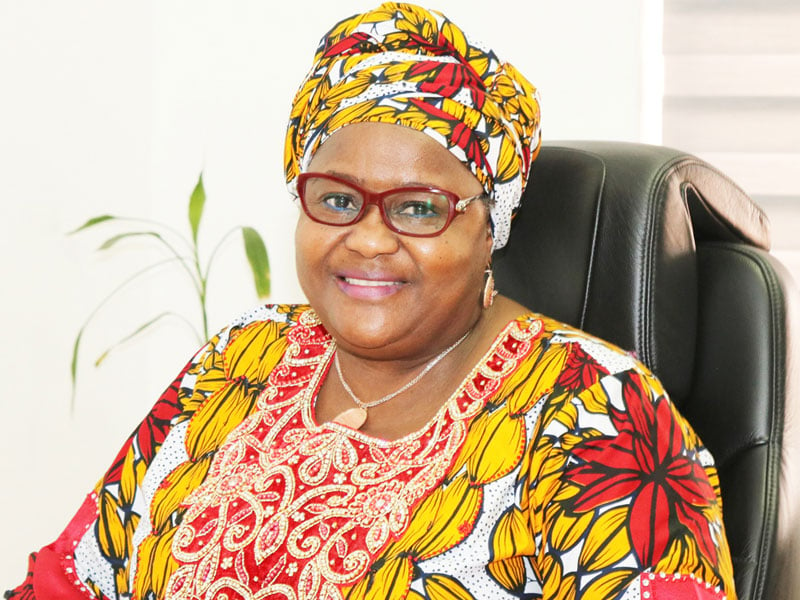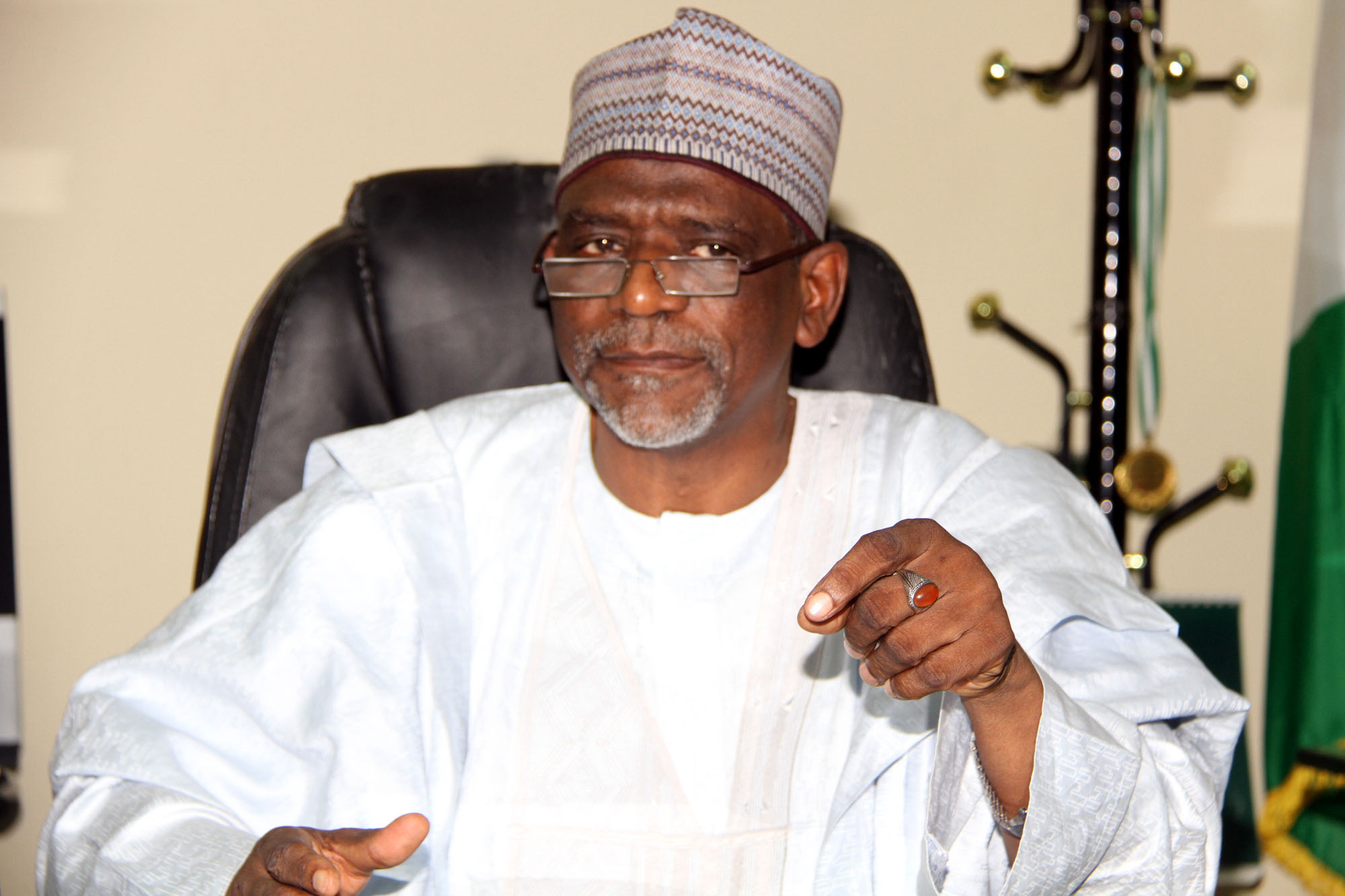On Tuesday, the senate considered a letter from President Muhammadu Buhari announcing six nominees for appointment as chairman, director-general, and executive commissioners of the National Pension Commission (PenCom).
The nominees are Oyindasola Oni (north-central) as the chairman, Aisha Dahir-Umar (north-east) as the director-general, and Hannatu Musa (north-west), Clement Akintola (south-west), Ayim Nyerere (south-east) and Charles Emukowhale (south-south) as executive commissioners.
The previous DG was Chinelo Anohu-Amazu (south-east), who was controversially removed in April 2017, midway into her five-year tenure.
The president’s decision to appoint Dahir-Umar (pictured) from the north-east did not go down well with some of the senators.
Advertisement
Some of the federal lawmakers argued that it is illegal for him to replace the former DG — who did not complete her tenure as the south-east nominee — with a northerner.
They based their argument on section 21(2) of the Pension Reform Act 2014, which provides thus: “In the event of a vacancy, the President shall appoint a replacement from the geopolitical zone of the immediate past member that vacated office to complete the remaining tenure.”
Enyinnaya Abaribe, the senate minority leader who was one of those that rejected Umar’s nomination, said: “I recall that the tenure of the incumbent was truncated therefore the new letter from the president that has now moved the chairman of the commission to another zone may not be correct. It is against the law setting up the National Pension Commission and the Federal Character Commission.”
Advertisement
WHAT DOES THE LAW SAY?
To verify the claim, TheCable checked what the law says. Here is what we found.
Section 19 (3) of the Pension Reform Act 2014, which lists the statutory guidelines for appointment into the PenCom board, states that, “the Chairman, the Director-General and Commissioners shall be appointed by the President subject to confirmation by the Senate,” while subsection 4 provides that each of the appointees shall represent each of the six geopolitical zones of Nigeria.
Further down, section 21(1)(h) provides that a person shall cease to be a member of the board if among other things, “the President is satisfied that it is not in the interest of the Commission or the public for the person to continue in office and notifies the member in writing to that effect.”
Advertisement
In replacing such board member, section 21(2) requires the president to “appoint a replacement from the geopolitical zone of the immediate past member that vacated office to complete the remaining tenure”.
What then happens in the event that a board of the commission was not reconstituted after six months after it was dissolved as was the case with the former board? Section 106(4) of the act covers this: “Notwithstanding section 19(2)(a) and c of the Act, where a Board of the Commission is yet to be reconstituted after six months of the dissolution of the last Board, the President of the Federal Republic may appoint fit and proper persons with pension cognate experience to constitute the Board at the first instance, subject to confirmation by the Senate.”
Although the aforementioned provision gives the president the power to act notwithstanding what section 19(2)(a) — which deals with the position of the part-time chairman — and 19(2)(a) — which deals with the roles of the DG — the act did not extend such overriding powers to section 21(2). That ordinarily means the section — which deals with who the president must appoint to replace a past member whose tenure is not completed yet — remains sacrosanct regarding what is needed to appoint a replacement.
This is especially so as no other section of the PRA provides for an exception to what section 21(2) states in the case of appointing the replacement for a previous member.
Advertisement
BUT IS DAHIR-UMAR A REPLACEMENT OR A SUCCESSOR?
Anohu-Amazu, whose appointment as PenCom DG was confirmed by the senate in October 2014, was to spend five years in office as provided by the law. However, her tenure was cut short in 2017 with the dissolution of the board.
Advertisement
With the board yet to be reconstituted after six months as stated in the law, the president appointed Dahir-Umar as acting DG and she has remained in acting capacity beyond October 2019 when Anohu-Amazu’s tenure was to expire.
In other words, while section 21(2) of the PRA deals with the replacement of board members who did not complete their tenure, Dahir-Umar is being appointed as Anohu-Amazu’s successor, not her replacement.
Advertisement
For all intents and purposes, Anohu-Amazu’s tenure has expired and has been overtaken by events.
Like the other nominees, Dahir-Umar is coming in as a member of a new board, not a part of the previous one dissolved under Anohu-Amazu’s leadership.
Advertisement
CONSTITUTION VS PENCOM ACT
In the final analysis, section 171(2) of the 1999 Constitution of the Federal Republic of Nigeria (as amended) gives the president powers to appoint or remove head of any federal government extra-ministerial department. And this includes the office of the PenCom DG.
This constitutional power cannot be eroded by any act of parliament in the light of the provision of section 1(3) of the constitution which provides that “if any other law is inconsistent with the provision of this Constitution, this Constitution shall prevail, and that other law shall to the extent of the inconsistency be void”.
If the PenCom acts conflicts with the constitution on presidential powers, it is settled in law that the constitution prevails.
Add a comment







